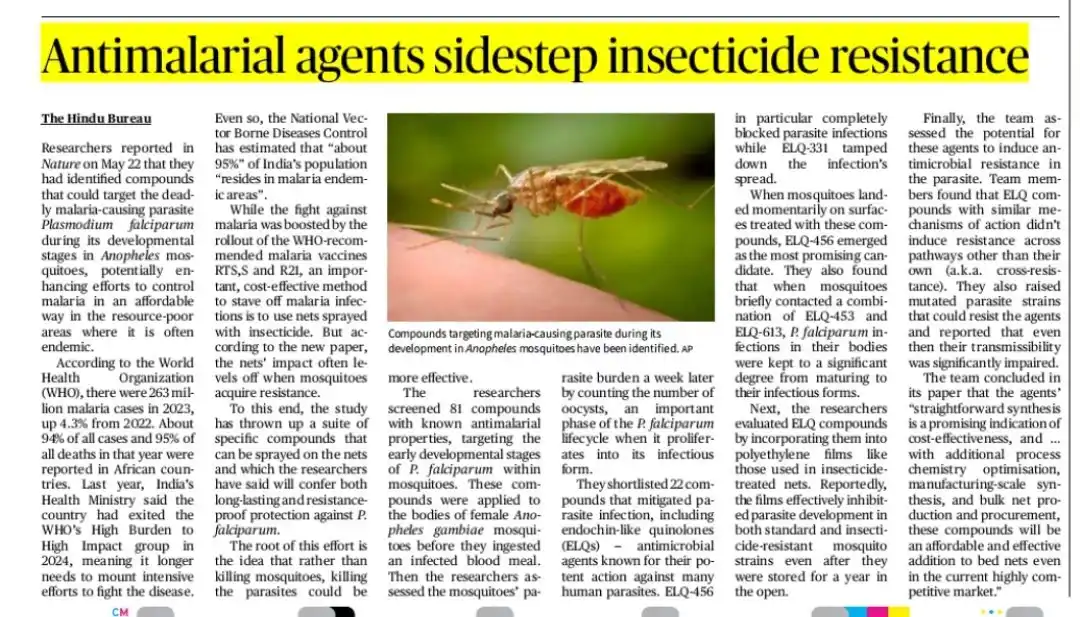
UPSC Science Technology UPSC UPSC UPSC UPSC Upsc Upsc Upsc Upsc UPSC BPSC MPPSC UPPSC CAPF CDS NDA™
May 27, 2025 at 02:13 PM
📍The Problem of Insecticide Resistance:
✅Mosquitoes can develop resistance to insecticides through natural selection, where mutations that allow them to survive exposure to insecticides are passed on.
✅These mutations can involve altering the mosquito's nerve cells (e.g., knockdown resistance), increasing detoxification enzymes, or other mechanisms that prevent the insecticide from being effective.
✅Antimalarial Agents as a Solution:
Antimalarial agents like ELQs target the malaria parasite itself, not the mosquito's nervous system or detoxification pathways. This means that even if mosquitoes are resistant to insecticides, the antimalarial agents can still effectively block the parasite's development and transmission.
✅Mechanism of Action:
ELQs, for example, interfere with specific enzymes or processes essential for parasite development within the mosquito's oocyst. They prevent the parasite from maturing to the infective stage (sporozoite), thus halting the transmission cycle.
#science_technology

👍
3